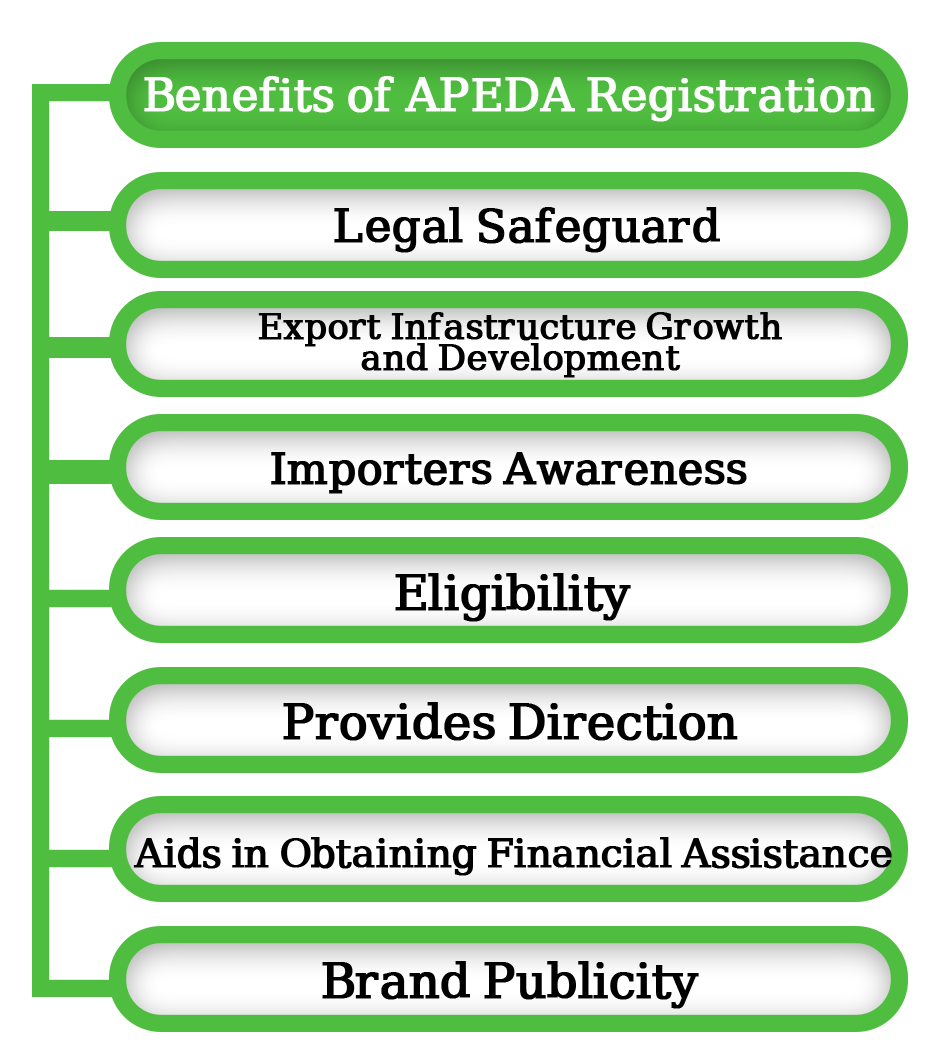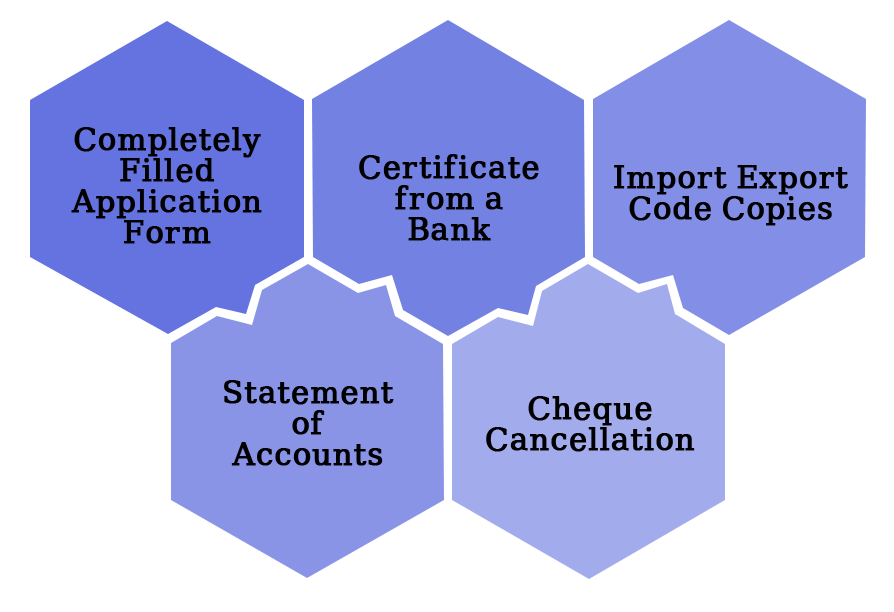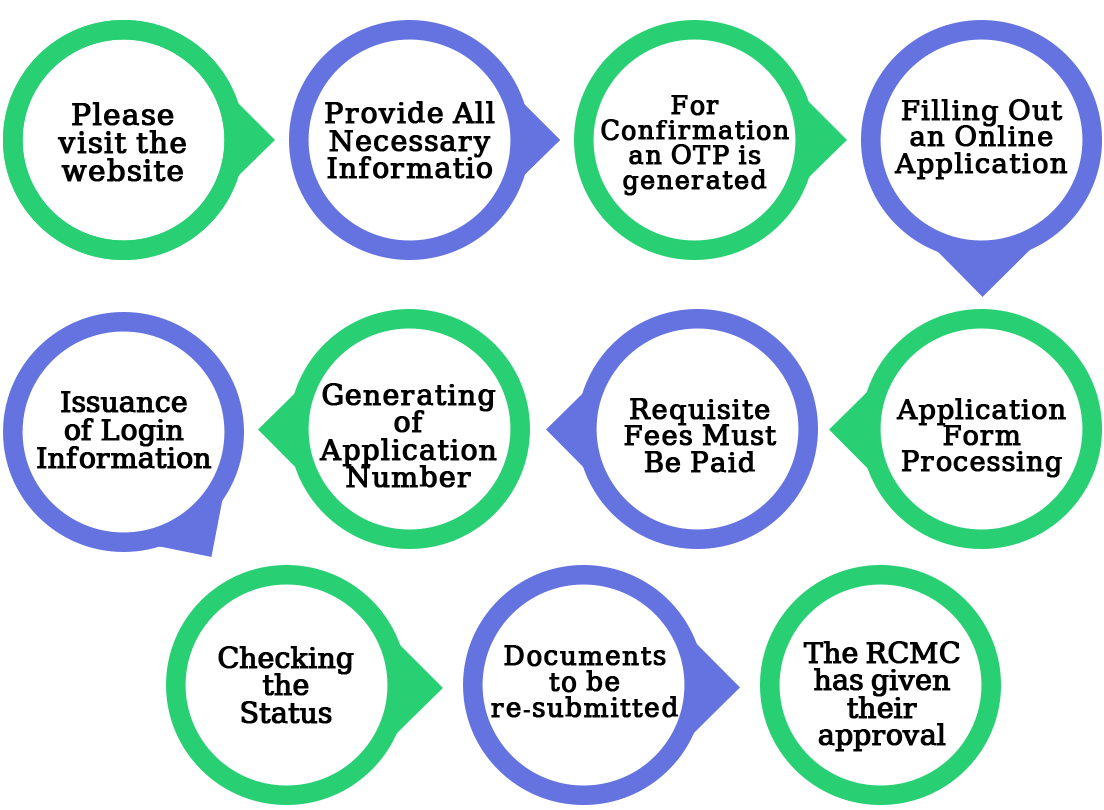Overview of Apeda Registration
Agricultural and Processed Food Products Export Development Authority is abbreviated as APEDA. It is an executive organization that was founded in 1985 as a result of an act to promote the growth and export of scheduled products. It provides funding, knowledge, and rules for the development of scheduled products. Schedule items are products that are listed under the APEDA Act, and exporters who intend to export such scheduled products must self-register under APEDA.
It also works in the direction of providing financial assistance to the planned items while also issuing recommendations and providing information on their progress.
Agriculture plays a critical part in the Indian economy, producing a significant portion of India's overall exports and a percentage of overall industrial investment. The agriculture and processed food products industries are uniformly going in the direction of growth and expansion, which is only feasible due to government initiatives.
The Government of India formed the Agricultural and Processed Food Products Export Development Authority under the Ministry of Commerce and Industry to execute export promotion and development efforts for scheduled products.
What are the Benefits of Registering with APEDA?
The following are some of the benefits of APEDA registration:

Ensures legality
Any individual or entity wishing to engage in the export of scheduled products must first get APEDA Registration, which serves as a legal safeguard for the company.
Enhances Export Infrastructure Growth and Development
Exporters can use the APEDA subsidies for the creation and development of export infrastructure, as well as featured and market development operations, once they have completed the registration process.
Awareness among Importers
APEDA Registration lets exporters learn about the newest export quality standards, trade shows, infrastructural support, and agriculture-exchange reports.
Boosts Eligibility
Exporters that receive APEDA registration will be entitled to participate in APEDA's different training program for business and skill development.
Provides Directions
APEDA Registration provides exporters with guidelines and instructions on a variety of scheduled items in order to improve their company structure.
Assists in Obtaining Financial Assistance
APEDA registration aids in the application of numerous financial assistance program.
Publicity for a brand
APEDA registration aids exporters in promoting their brands in the market.
What product lists are available under the APEDA Act of 1985?
- Alcoholic and Non-Alcoholic Beverages.
- All types of Chocolates and Cocoa products.
- Cereal and Cereal Products.
- Confectionery, Biscuits and Bakery Products.
- Dairy Products.
- Floriculture and Floriculture Products.
- Groundnuts, Peanuts and Walnuts.
- Guar Gum.
- Herbal and Medicinal Plants.
- Honey, Jaggery, and Sugar Products.
- Meat and Meat Products.
- Pickle, Papad, and Chutney.
- Poultry and Poultry Products.
What are the documents needed to register for APEDA in India?

Completely filled Application form
Because the application for APEDA Registration can be completed online, all applicants must first create an account on the APEDA website and then complete the e-form.
Certificate from a bank
The bank certificate is usually issued by the applicant's bank and signed by the branch manager. This certificate includes a feedback report on the applicant, which aids the authority in determining his reliability when it comes to handling finances and credit.
Specifications of the Bank Certificate*
- Name of the bank, branch, and reference number
- Name and address of the company.
- The Constitution's nature.
- The applicant's name.
- Account's nature.
- The applicant's extracurricular activities.
- In the case of a limited firm, authorized capital.
- In a nutshell, the applicant's feedback.
Keep in mind that a bank certificate is a private document that is normally provided in a sealed envelope. The applicant's trustworthiness in terms of payback, commitments, and relationship with the bank is often demonstrated by this certificate. The applicant's prospects of being approved by the authorities are surely improved by the good assessment, especially in the event of a government licence.
Import-Export Code Copies
One of the most important documents for APEDA registration is the IEC (Import Export Code). Those who want to start an import-export firm in India can use it. In India, the DGFT (Director General of Foreign Trade) is the sole organisation with the authority to issue such a code. The International Electrotechnical Commission (IEC) number is a ten-digit designation having a lifetime validity. In the lack of the IE code, cross-border goods movement is impossible.
When does IEC Certification become necessary?
- An importer wishes to have the cargo cleared by customs.
- The supplies are to be sent by an importer.
- The foreign currency is received by an exporter.
- The shipments are to be sent by an exporter.
The applicant must prepare the following documents in order to obtain IEC Registration.
- A copy of an individual's permanent account number (PAN).
- Aadhar card, voter ID, or a copy of a person's passport.
- Cancel the current bank account's check.
- A copy of the business's utility bill or lease agreement.
Statement of Accounts
The bank statement for the previous months must be submitted by the applicant requesting APEDA registration. Such a deliverable is required by the authority in order to determine the applicant's financial position.
Cheque Cancellation
A cancelled cheque is a common document requested when submitting a government-based application. Make sure the duplicate of the same is not expired or outdated by the bank before delivering it.
What is the process for getting an APEDA registration?
The applicant can submit an online application using digital signatures to simplify the process. Exporters can submit an application online by following the steps below:

Please visit the website.
Log in to the APEDA website and select "Register as Member."
Provide All Necessary Information
Fill in the required information, such as the Internet Explorer code, email address, and phone number, and then click the submit button.
For Confirmation, an OTP is generated.
A One-Time Password is required to confirm the information.
OPT will be sent to your e-mail address and cell phone number. To continue, click the Submit Button.
Filling Out an Online Application
Fill out the online application and attach the required documents after the verification is complete.
Note that the documents should only be in JPEG, PDF, or PNG format.
Application Form Processing
By returning to the website using the supplied OTP, the online application can be completed in one or more sessions. Also, once the information has been filed in the appropriate fields, remember to save the data. You can make changes to the information you've submitted until you make an online payment.
Requisite Fees Must Be Paid
Payment of Rs. 5000/- (excluding taxes) is required for APEDA registration and can be made in any of the following ways:
- A credit card is required.
- Credit or Debit Card
- Demand draught payable to different cities in favour of "APEDA"
Generating of Application Number
After you've made your payment, you'll be given an application number, which you'll need for future reference.
Issuance Of Login Information
The login information will be provided to the exporter's registered email address after the Registration Cum Membership Certificate is issued. The Exporter can access their account by clicking the "Exporter Login" link.
Checking the Status
By clicking the "Track Application" link and entering the IE Code and Application number, an applicant can check the status of their RCMC application until it is issued.
Documents to be re-submitted
The exporter will have to monitor and resubmit the document online if there is any discrepancy in the application.
The RCMC has given their approval
The final step is RCMC approval, after which the Certificate can be obtained through APEDA Login under the name of "View RCMC Certificate."
What are the Penalties for Registering Under APEDA in India?
If any individual or person-in-charge who is responsible to a nodal agency for conducting the nodal agency's business interrupts any officer of APEDA or any other person authorized by it to conduct inspections assigned by APEDA, such individuals, as well as the nodal agency, will be subject to APEDA's penalties. In addition, there are a number of conditions that must be met before sanctions can be imposed-
In Case of Accredited Certification Bodies
- When an Accredited Certification Body is discovered to have given intentionally incorrect or misleading information or documents after receiving delegation.
- If an applicant body seeking accreditation has given false information or documentation.
- If an ACB does not follow the NPOP's criteria, it will be sanctioned.
- If it is discovered that the operator's certification was awarded inadvertently by an Accredited Certification Body, the certification will be revoked, and the delinquent Accredited will be removed.
- In addition, the NAB will determine compensation depending on each case's facts and circumstances.
- When an ACB purposely inputs incorrect data on Trace.net about organic production, farm location, and product movement in the chain of custody.
- Where there has been a misrepresentation of the certification's scope.
- If ACB does not submit information within the specified time frame.
- If an ACB commits a subsequent offence, whether it is of the same or similar type as the previous offence or of a different character, the ACB will face additional penalties.
ACB stands for Accredited Certification Body in this case.
Non-compliance will result in a penalty.
A fine of up to Rupees Five Lakhs may be imposed on a person who violates the law. Furthermore, the Accredited Certification Body's licence may be revoked, and it may be barred from reapplying for accreditation for a period of one year.
Penalty
The application will be turned down.
Penalty
Accreditation will be stopped for a period of up to one year, and a penalty of up to Rs 500,000 would be imposed.
Penalty
To the extent that the loss is quantifiable, ACB is liable to reimburse the operator.
When an ACB fails to update and validate the required data on Trace.net regarding organic production, farm location, and product movement in the chain of custody.
Penalty
The fine could be as much as Rs 300,000.
Penalty
The fine could be up to Rs 500,000.
Penalty
The penalty might be as much as Rupees Three Lakhs (300,000).
Penalty
It's possible that your accreditation application will be turned down.
Penalty
It might go up to Rs 500,000.
In Case of Operator
- If a certified operator does not follow the NPOP's criteria.
- If there are non-compliances for the presence of restricted substance residues in exported consignments.
- If prohibited substance traces are found in exported consignments on a regular basis.
The penalty might be up to Rs. 5 lakhs (500,000). In addition, the certification may be revoked for a period of one year.
The penalty might be up to Rs 200,000.
Penalty
It might go up to Rs. 500,000. The exporter will also be barred for a year.
What are the APEDA authorities' responsibilities?
APEDA is in charge of export promotion and product development for scheduled items. APEDA authorities are responsible for a variety of tasks, including the following: - Development and Promotion
APEDA authorities are tasked with encouraging export-oriented manufacturing and development of Scheduled products.
The Standards' Positioning
The standards and specifications for the scheduled items are assigned to APEDA Authorities.
Enrolling Those Who Export
On payment of the requisite fees, the APEDA authorities register exporters of scheduled products.
Assist with packaging and marketing improvements
APEDA authorities are tasked with assisting in the improvement of the packaging and marketing of Scheduled products.
Products are inspected
The APEDA Authorities have been tasked with assisting in the inspection of items in order to ensure their quality.
Training in a Variety of Subjects
APEDA Authorities has been tasked with providing training in a variety of businesses related to the scheduled products.
Obtaining Statistics from Establishments
The APEDA Authorities are in charge of collecting and publishing statistics from the owners of enterprises and establishments.
When is it possible to cancel an APEDA registration?
In the following circumstances, your registration may be cancelled:
- False information was provided.
- The registering authority has broken the rules.
- Contravention of the registration certificate's terms and conditions.
- For a period of 12 months, the scheduled product has not been exported.
Why Choose Us

Free Legal Advice

Transparent Pricing

On Time Delivery

Expert Team

Money Back Guarantee

200+ CA/CS Assisted

Lowest Fees

Easy EMIs
Frequently Asked Questions
The Agricultural and Processed Food Products Export Development Authority (APEDA) is a government agency that promotes the export of agricultural and processed food products.
APEDA registration is valid for the rest of one's life. The authority, on the other hand, has the authority to revoke it.
- Increases the creation and growth of export infrastructure.
- This document contains guidelines.
- Assists in obtaining financial support.
- Publicity for a brand.
A manufacturing exporter or a merchant exporter.
 9559179325
9559179325 9559179325
9559179325 9559179325
9559179325











